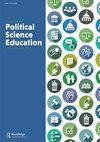Introduction
IF 0.6
Q3 POLITICAL SCIENCE
引用次数: 0
Abstract
Much has been written on the present and future interactions between science and law, less so of their past. This issue brings together scholarship from history, anthropology, philosophy, and social studies of science in the attempt to add a much-needed historical perspective to the important discourse concerning the relations between science and law. The issue consists of nine papers arranged in chronological order, except for the two synthetic papers that open and close it. The papers vary widely in subject and approach. However, out of this diversity several themes emerge. Scientific expert testimony has been a cause of much concern lately in AngloAmerican courts. It is a commonplace today that "junk science" introduced into the courts by partisan scientific experts presents a dramatic new problem that demands immediate redress. However, in the opening article, I show that discontent with scientific expertise has existed ever since there were scientific expert witnesses in the courts. Tracing the development of scientific expert testimony in eighteenthand nineteenth-century England, I demonstrate that the debate over the meaning of conflicting scientific expert testimonies and the ways to resolve the conflicts had acquired by the mid-nineteenth century all the features that today are blithely assumed to be new. The courts' ability to handle complex science-rich cases has been constantly called into question. Critics have argued that judges cannot make appropriate decisions because they lack technical training, and that jurors do not comprehend the complexity of the evidence they are supposed to analyze. Paternity cases in which men were determined to be fathers, even though blood tests could prove that biological paternity was impossible, have served as a much-cited example of the judicial misuse of science. However, analyzing the role paternity blood tests played in divorce cases throughout the twentieth century, Shari Rudavsky shows that judicial distaste for science in paternity cases does not come from a failure to understand science. The goals of the law, Rudavsky reminds us, are not always consistent with those of science. And when the interest of a child is at stake, the courts often prefer a social definition of paternity to a biological one. The courts, then, are not neutral gatekeepers that simply exclude from the courtroom unreliable scientific testimony, but rather active partners in the production and maintenance of credible scientific evidence. As such, the courts prefer介绍
关于科学和法律之间现在和未来的互动,已经写了很多文章,而对它们的过去则不那么了解。这一问题汇集了历史、人类学、哲学和科学社会研究的学术成果,试图为有关科学与法律关系的重要论述增添急需的历史视角。本期共有九篇论文,按时间顺序排列,除了打开和关闭本期的两篇合成论文。这些论文在主题和方法上差异很大。然而,在这种多样性中,出现了几个主题。最近,科学专家的证词在英美法庭上引起了极大的关注。如今,由党派科学专家引入法庭的“垃圾科学”提出了一个引人注目的新问题,需要立即纠正,这是司空见惯的事。然而,在开篇的文章中,我表明,自从法庭上有科学专家证人以来,对科学专业知识的不满就一直存在。通过追溯18世纪和19世纪英国科学专家证词的发展,我证明,到19世纪中期,关于相互冲突的科学专家证词含义和解决冲突的方法的辩论已经获得了今天被愉快地认为是新的所有特征。法院处理复杂科学案件的能力一直受到质疑。批评者认为,法官无法做出适当的决定,因为他们缺乏技术培训,陪审员也不理解他们应该分析的证据的复杂性。尽管血液测试可以证明生理上的亲子关系是不可能的,但男性被认定为父亲的亲子关系案件是司法滥用科学的一个被广泛引用的例子。然而,Shari Rudavsky分析了20世纪亲子血检在离婚案件中所起的作用,表明司法部门对亲子案件中科学的厌恶并不是因为不了解科学。鲁达夫斯基提醒我们,法律的目标并不总是与科学的目标一致。当孩子的利益受到威胁时,法院通常更喜欢父亲身份的社会定义,而不是生物学定义。因此,法院并不是简单地将不可靠的科学证词排除在法庭之外的中立守门人,而是生产和维护可信科学证据的积极合作伙伴。因此,法院倾向于
本文章由计算机程序翻译,如有差异,请以英文原文为准。
求助全文
约1分钟内获得全文
求助全文
来源期刊

Journal of Political Science Education
POLITICAL SCIENCE-
CiteScore
1.80
自引率
36.40%
发文量
69
期刊介绍:
The Journal of Political Science Education is an intellectually rigorous, path-breaking, agenda-setting journal that publishes the highest quality scholarship on teaching and pedagogical issues in political science. The journal aims to represent the full range of questions, issues and approaches regarding political science education, including teaching-related issues, methods and techniques, learning/teaching activities and devices, educational assessment in political science, graduate education, and curriculum development. In particular, the journal''s Editors welcome studies that reflect the scholarship of teaching and learning, or works that would be informative and/or of practical use to the readers of the Journal of Political Science Education , and address topics in an empirical way, making use of the techniques that political scientists use in their own substantive research.
 求助内容:
求助内容: 应助结果提醒方式:
应助结果提醒方式:


